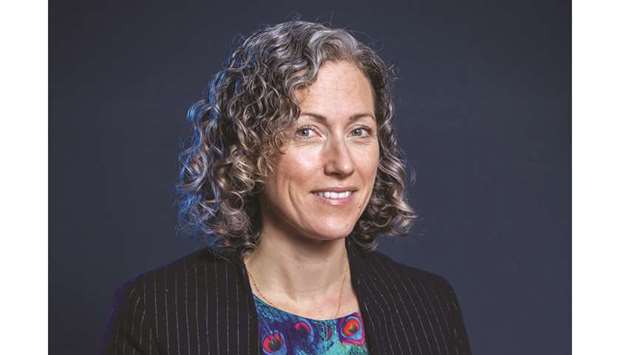Qatar Environment and Energy Research Institute (Qeeri), part of Qatar Foundation’s Hamad Bin Khalifa University (HBKU), has partnered with a farm located in the southwest of Doha to build an integrated solar photovoltaic (PV) system to supply the farm with the required electrical energy.
With the farm’s switch to PV complete, the next stage is to optimise water usage on the farm.
Led by Dr Jenny Lawler, Qeeri’s senior research director for the Water Centre, the team is now exploring where and how water can be recycled and reused, thus allowing agricultural yield to remain the same while using less water.
“While Qatar’s drive to increase its agricultural output to meet local needs is commendable, what is equally important, if not more, is that sustainable farming practices are adopted to ensure we use the country’s severely limited water resources in a responsible manner,” Lawler said.
Just about a decade ago, the only agricultural crop that Qatar grew on a large-scale was the date palm. Today, the country is home to approximately 1,000 agricultural farms, private and commercial, that grow a range of vegetables.
“Farms in Qatar currently rely heavily on groundwater for their irrigation needs. It is common practice for wells to be dug on farms for direct access to ground water. Groundwater is currently being extracted at a much higher rate than it is replenished, with the annual rate of extraction almost five times that of recharge,” Lawler said.
The groundwater in Qatar has a high salt content, compelling farmers to first desalinate the water to make it suitable for irrigation. Unfortunately, the salty wastewater produced during desalination is too often dumped on the ground without treatment. It can contain corrosion products, scale inhibitors, pesticides and other inorganic compounds, which can eventually make their way back to the groundwater, contaminating and and increasing the salinity even further.
“We are looking at a number of potential ways to convert this waste salt into something of value, such as recovery of useful chemicals or novel energy recovery technologies,” she said.
In traditional agriculture, there is a huge amount of water loss due to evaporation caused by hot weather. As an alternative, greenhouses are widely used in Qatar to protect plants from extreme heat and reduce excessive energy and water requirements.
“These greenhouses use what is called an evaporative cooling system. It consists of cardboard pads on one end of the greenhouse and fans on the other. Water is poured down on the pads. The problem is, the amount of water used in this process is about four times the amount used to irrigate the crops,” Lawler explained.
Her team is looking at ways to recover and capture this cooling water, for example, by strategically locating condensing units that can capture it after it has done its cooling job and then reusing it either for irrigation or cooling.
“Qatar’s water table is dropping every year, along with deterioration in water quality: this is a huge concern for a country that has no other natural water source,” said Dr Marc Vermeersch, executive director at Qeeri. “It is imperative that the farming sector adopts sustainable practices as soon as possible to avoid prolonged depletion of groundwater, which can lead to serious issues like land subsidence and coastal changes.
“We hope that this pilot project can pave the path for farms in Qatar to operate more sustainably. Qeeri is committed to addressing Qatar’s energy, water and environmental grand challenges, and our scientists aim to build on this project to test the technologies for wider use on desert farms, which will in turn advance Qatar’s food security goals.”

Dr Jenny Lawler
